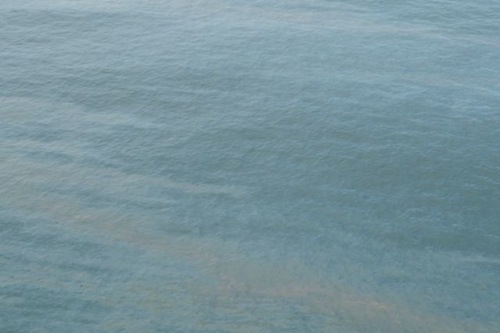Even as BP and US government officials continue to declare the oil spill over at Mississippi Canyon 252 and the cleanup operation an unqualified success, for the first time blood tests on sickened humans have shown signs of exposure to high levels of toxic chemicals related to crude oil and dispersants. Some of the individuals tested have not been on the beaches, were not involved in any cleanup operations or in the Gulf water -- they simply live along the Gulf Coast. Several of them are now leaving the area due to a combination of illness and economic hardship. As the media's attention has moved on and the public interest wanes, the suffering and hardship for people along the entire Gulf Coast of the United States from Louisiana to Florida continues to worsen. While BP and the government are scaling back cleanup operations and distancing themselves from legal liability for the environmental destruction, economic hardship, sickness and death resulting from the largest environmental disaster in our nation's history, the situation continues to deteriorate.
The use of the Corexit dispersant 9500 and the highly toxic 9527 by BP, with the approval and assistance of the US Coast Guard and EPA, has been the subject of intense scrutiny and criticism. Never before has such a huge quantity of the toxic compound been used anywhere on the planet. Most countries including NATO allies ban it's use and will only grant approval as a last resort after other methods have failed. Britain has banned its use altogether. The NOAA provided extensive information summarizing other nation's policies in regards to Corexit after Senator Barbara Mikulski demanded the information from EPA administrator Lisa Jackson during congressional hearings in July. While the dispersant serves to break down crude oil on the surface and thus makes the oil invisible from the air, it is highly toxic and bioaccumulates in the marine food chain. In humans it is a known carcinogen and its use was widely condemned after Exxon/Valdez and the horrifying health effects on the populations exposed to it there. As it evaporates and becomes airborne, the toxic compounds have moved on shore, creating health impacts that, although apparently large from the numbers of people affected, the full extent is unknown. BP and the US government have effectively been performing the largest chemical experiment in history on a civilian population without their knowledge or consent.

Dispersant and crude in Gulf
Within two days after arriving in the region in mid-July, everyone on our team began getting sick. After our first day out on the water with Captain Lori of Dolphin Queen Cruises touring the lagoons around Orange Beach, Alabama, we all had extreme headaches. During our boat tour, dispersant was visible covering the water everywhere. That evening I developed a gagging, coughing reflex that was so intense and persistent it was impossible to speak to my daughter on the phone. The symptoms typical for high levels of chemical exposure such as burning, itching eyes, constantly runny nose, chronic coughing, burning sore throat, chest congestion, and lethargy progressively intensified. Over the next several weeks these symptoms continued to worsen until I developed chemically-induced pneumonitis. Before leaving the area I had blood tests initiated to determine if the levels of exposure were high enough to be be detected. The musical activists Sassafrass and the tireless efforts of Michelle Nix allowed myself and several local residents to have blood drawn and tested by Metametrix for chemical exposure. Project Gulf Impact and the Coastal Heritage Society have also contributed greatly to air and water testing in the Gulf region affected by the spill. Project Gulf Impact has set up a dedicated medical help phone line at 504-814-0283. It has proven extremely difficult to find medical care providers who are willing to see patients who have been impacted by the oil spill due to the tremendous pressure exerted against hospitals, clinics, and physicians by BP. In numerous cases BP has provided financial payments to institutions and individuals in exchange for them agreeing not to allow their physicians or staff to see, advise, or treat anyone sickened as a result of the well blowout.
I spoke at length with Michael R. Harbut, MD, MPH, who is clinical professor of Internal Medicine and director of the Environmental Cancer Program at Wayne State University's Karmanos Cancer Institute. Board Certified in Occupational and Environmental Medicine, Harbut was Chair of the Occupational and Environmental Health Section of the American College of Chest Physicians, was Medical Coordinator of the Kibumbe Refugee Camp during the 1994 Civil War in Rwanda, where the death rate for patients under his care was 1/3 that of the remainder of the camp and was Chief US Medical Advisor to Poland's Solidarity during the Cold War. His research has been published or presented in venues ranging from the New England Journal of Medicine to the White House.
READ MORE AT THE LINK:
http://www.huffingtonpost.com/jerry-cope/no-safe-harbor-on-gulf-co_b_698338.html
No comments:
Post a Comment